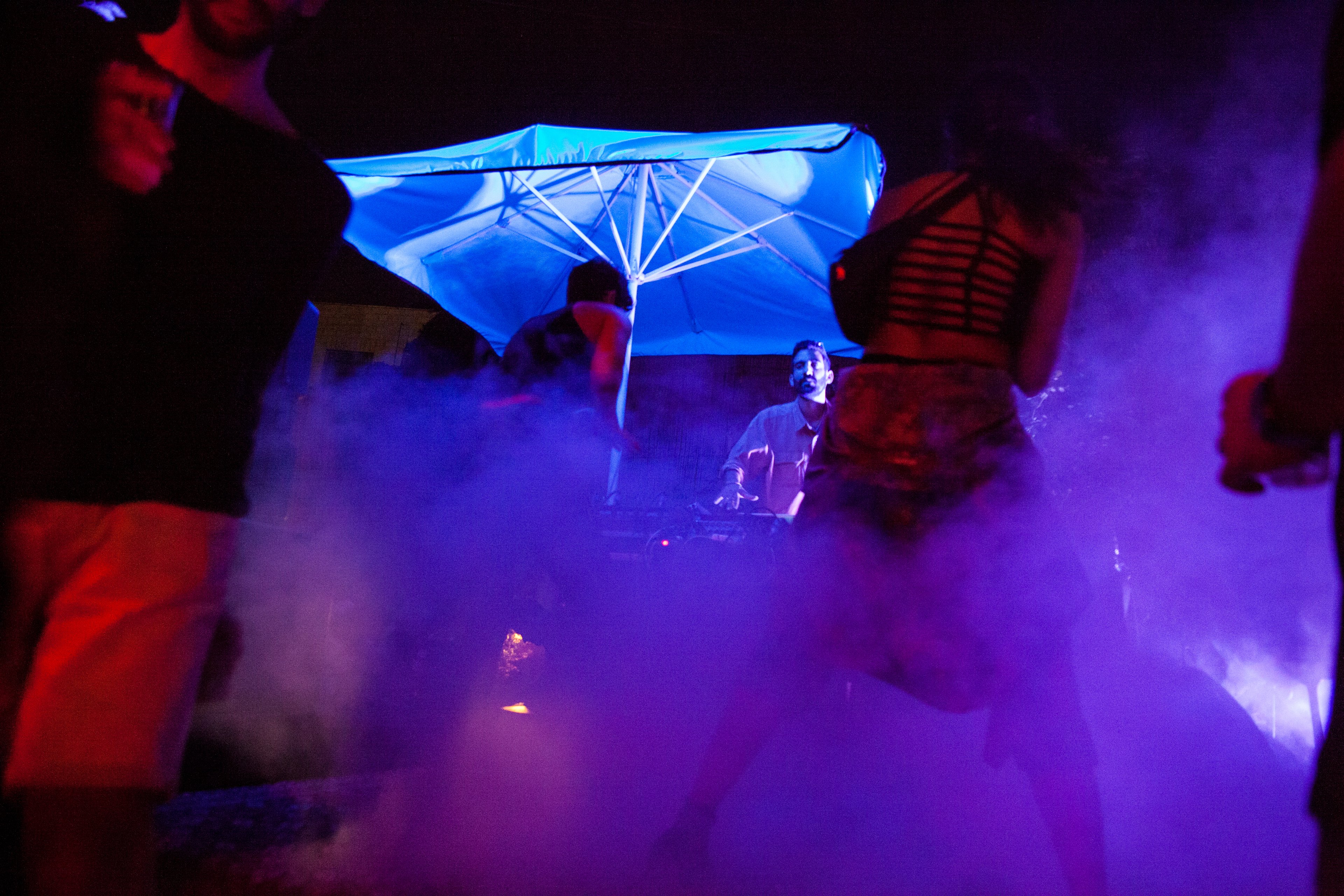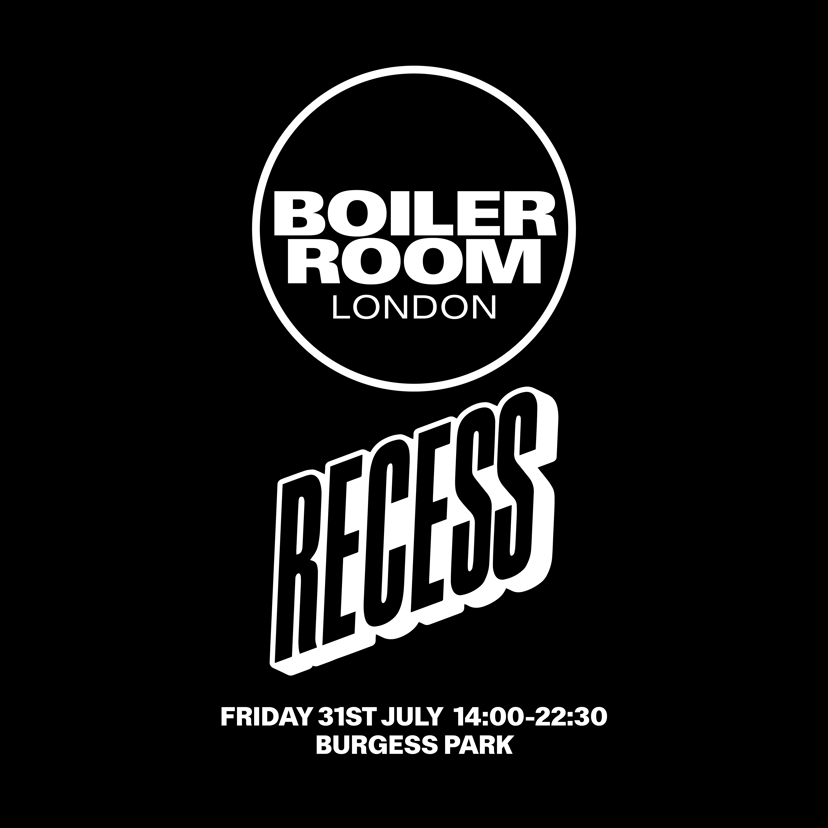
Radio Nard: The Palestinian Station Breaking Down Borders
Get to know Radio Nard. We speak to the trio behind the globally-minded Palestinian broadcasters that wants to break down borders.
Get to know Radio Nard. We speak to the trio behind the globally-minded Palestinian broadcasters that wants to break down borders.
Radio Nard is Palestine’s response to Boiler Room: an online broadcasting platform that connects DJs, artists, and producers with music fans through a carefully curated audio experience.
Back in 2014, Bethlehem-based selector and musician Laith AlBandak decided to start an internet radio station that’d offer an alternative to the “trashy pop songs” that spun on a loop on local stations. Having established a relationship with Jordanian cultural publication 4Youth Magazine, things began simply with a weekly online playlist.
This soon evolved into something grander in March 2015, when Radio Nard organised their first live broadcast from Amman. “It went really well,” Laith recalls. “So then we started to broadcast sessions with selectors from Amman, Cairo, Bethlehem and Ramallah every week.” Those livestreams became the bedrock of the Radio Nard experience, in a country where throwing parties is as important as it is difficult.

Since then, Laith’s been joined by Odai 'ODDZ' Masri (pictured above) and Ramzi Hazboun, a pair of multi-disciplinary creatives from the Palestinian city of Ramallah. Radio Nard’s aim is simple; they want to showcase the music they love, and promote Palestinian culture worldwide. They also want to “break the physical and mental borders created by the harsh and blind colonising structures of the Israeli government.”
As part of our Contemporary Scenes campaign, Boiler Room spoke with the team behind Radio Nard to find out more about what they do and, why, in the context one of the most divided regions on Earth, it matters.
Can you tell us a little about how you actually go about live streaming from your room?
Radio Nard: Sometimes we broadcast live sets from our studio or home, and the venues we’re working with broadcast our sets live as we’re playing.
In terms of equipment, it depends on what’s available. We occasionally use turntables, drum machines and synths, but most of the time we rely on just a laptop, and an internet connection.
When it comes to software, we use Mixlr to broadcast our shows. And for local parties we usually use our own 2I2O sound-card with DJ controllers, though more recently we have rented CDJs.

**To what extent does Radio Nard helps you circumvent the travel restrictions imposed on Palestinian artists and DJs living in the West Bank? **
Radio Nard: Internet streaming brings DJs and people from all across the globe closer together through music. We think this offers a beautiful and peaceful way to disobey the travel restrictions we face in the whole region.
Odai Masri: The political situation impacts what we do, of course. Last New Year’s Eve we booked Habibi Funk to perform in Ramallah. We’d built this amazing line up, everyone was excited, and then on the day there were clashes between Palestinian citizens and the Israeli army. Civilians were killed, and the party was cancelled by our government.
Cancellations are a regular occurence. Either we cancel them ourselves as a show of solidarity, or the authorities shut them down due to the ongoing political situation. That’s one of the main reasons we stream live on Radio Nard.

Who’s been involved with Radio Nard over the years?
Radio Nard: Most of the artists in the local scene have taken part in some capacity, through broadcasts, podcasts, or live shows. Our first ever guest was Muqata’a. Then we had local acts like Jazar Crew, Saleb Wahed, Stormtrap, BLTNM, Harara, Harout Sultan, Mad Hatter, Kalli, Smokaholic and QAA.
Since then, we’ve showcased talent from across the Arab world, featuring the likes of Bashar Suleiman, Special NID, and Arabs with Synthesizers.
We’ve also been lucky enough to attract international acts from countries as distant as Argentina and Italy. We’ve even had former Boiler Room host Bradley Zero over.
What are the biggest challenges facing the platform on a day to day basis?
Radio Nard: We face lots of restrictions from “our” government, the Palestinian Authority, when doing parties and events locally in the West Bank, especially Ramallah. There’s a police rule that all venues must close by midnight. This obviously impacts on throwing parties, and restricts the sense of freedom we all want to feel.
We ourselves as a team need to work further for the radio to be streaming continuously. One of the biggest obstacles is that the three of us live in different cities (Ramallah, Bethlehem and Haifa). We all hold a Palestinian ID, so it’s not easy for us to meet due to the military occupation by Israel. It’s not easy to move through borders when you live in an apartheid regime.

Where would you like to take the project to?
Radio Nard: One of the main aims for us is to break physical and mental borders through music. We especially want to achieve that in the Arab world. Hopefully in the future we’ll stream sounds from Lebanon, Iraq or Algeria, and establish a connection between Ramallah and these countries. We want Radio Nard to be a platform for artists to connect irrespective of distance or geography and establish future collaborations.
In addition to that, we want to continue building a community around the station, whether it’s through interacting with listeners, or bringing together people who believe that music holds political power and the capacity to bring change to the status-quo.
A part of Contemporary Scenes, a BR series uncovering underground collectives, artists and subcultures from across the world






























